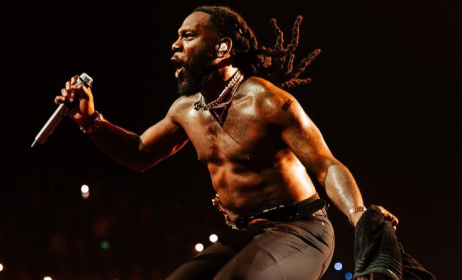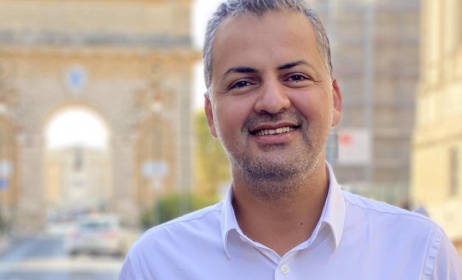Interview: Zakes Bantwini ahead of the 2023 Grammy Awards
South African electronic artist Zakes Bantwini has been on an impressive upward trajectory as of late – to put it lightly. Having started his career in 2004, the 42-year-old musician has come a long way to become one of the biggest brands in the local entertainment industry.
 Zakes Bantwini. Photo: Facebook
Zakes Bantwini. Photo: Facebook
With seven albums under his belt, Zakes Bantwini has been a significant part of the growth of dance music in the country, collaborating with such artists as Black Coffee, Khetha, BlaQRhythm, DeeTheGeneral and Mthunzi, among many others.
As a result of his collaboration with Nomcebo Zikode and Wouter Kellerman on the track ‘Bayethe’, his career received a major boost when the song was nominated in the Best Global Music Performance category at the 65th Grammy Awards.
As the music industry gears up for music’s biggest night at the Crypto.com Arena in Los Angeles on 5 February, Music In Africa spoke to Zakes Bantwini about the significance of his Grammy nomination, his collaboration with Zikode and Kellerman, the African music industry and his plans for 2023.
MUSIC IN AFRICA: Congratulations on your Grammy nomination. Being nominated for such a prestigious award must be very exciting.
ZAKES BANTWINI: It’s definitely exciting to be nominated for a Grammy. Last year, we collected several awards, including two South African Music Awards, and now we’re in contention for a Grammy Award. Besides just being excited, I’m extremely humbled.
What do you think made ‘Bayethe’ stand out at such a prestigious awards platform?
It’s just a really special record that brought together three global African artists at the perfect time. I’m really big on collaboration and this song is the perfect example of the power of collaboration.
What motivated you to join forces with Wouther Kellerman and Nomcebo Zikode to make this song?
I was at the SAMAs last year with Wouter and we started discussing the idea of working together. Everything just moved along really quickly and within a few weeks Nomcebo was also on board. It just felt like the perfect combination and we’re all so proud of the music that we produced.
At what point did you realise that this collaboration was working?
As soon as the song was done, we all knew that we had done something really special. It all unfolded so organically and whenever the process is this smooth, something special always comes out of it.
How does being nominated for a Grammy reflect on your music and the African continent in general?
African music has been in the spotlight for a while now and there have been a number of artists from across the continent that’ve won Grammys in the past few years. It’s a huge privilege for me to be recognised on such a prestigious stage and it’s a great reflection of the hard work my team and I have put in over the past year. I’ve always believed that my music competes on a global scale, so it’s extremely gratifying that we’re now getting acknowledged at the highest level.
What’s next for you after the Grammys?
I’ll be hosting a concert titled Abantu at DHL Stadium in Cape Town in a few months. We started last year with 1 500 people and this year we’re gunning for 25 000. I’ll also be releasing my final album, which is also titled Abantu, this year.
If you could change anything about the South African music industry, what would it be?
I think we’re in a really good place as an industry. We just need to keep going.
How do you balance work and family life?
I just make sure I manage my time and delegate accordingly in order to make sure I find a good balance between work, home and family.
What is your success mantra?
Collaboration. I’m all about collaboration and working hard within a team effort.



























Commentaires
s'identifier or register to post comments